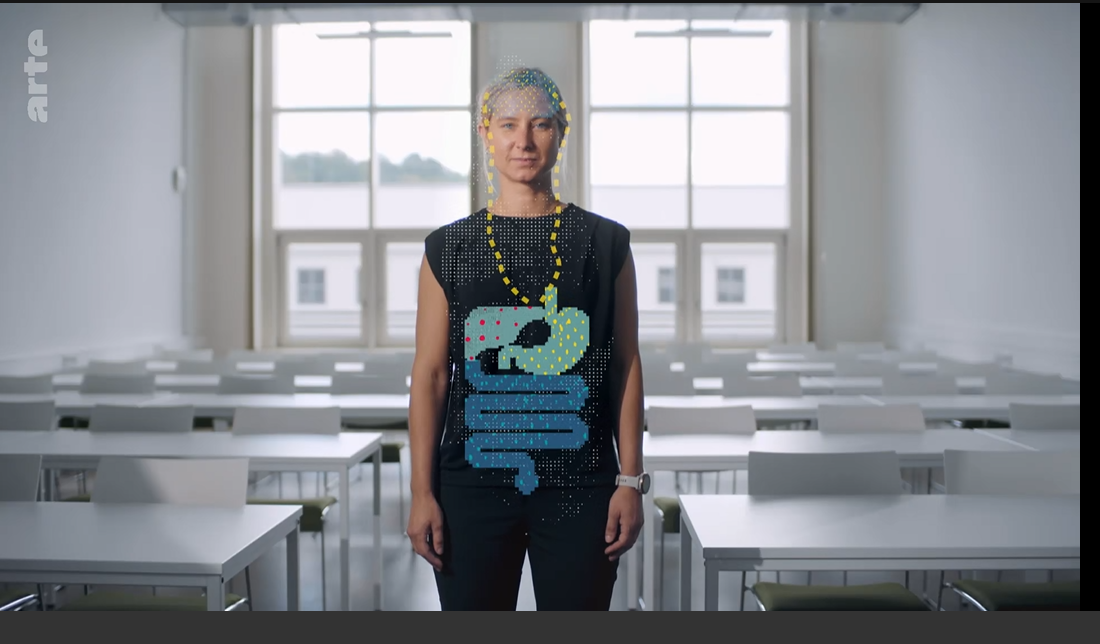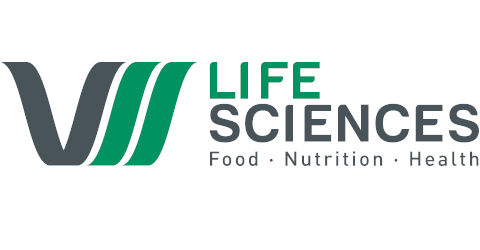This faculty's media publications

Published on 02.02.2025
Buddy Programme - A special prject on Campus Kulmbach
Prof. Dr. Tina Bartelmeß - Professor for Food Sociology is part of the Arte format "Was dürfen wir eigentlich noch essen? Die Antwort auf fast alles". In the maze of nutrition tips, are there any that we can rely on?
Buddy Programme - A special prject on Campus Kulmbach
Our Master's student Rachel from Nigeria, together with Franzi, her Buddy from Kulmbach, talks to the Radio Passenburg moderation team about our Buddy Programme. The project aims to create acquaintances and friendships across cultural differences and to simplify arrival and integration in Kulmbach.
You can listen to the whole interview on Radio Plassenburg here.
4you - TVO's new university magazine presents the Kulmbach Live-In-Lab
The new university magazine 4you presents the work of the four Upper Franconian universities and focuses on "Artificial Intelligence" in the first program. To this end, TVO visited Prof. Dr. Aldo Faisal and his team and now offers exciting insights into their work in the Live-In-Lab.
Click here for the full report. The Live-In-Lab starts at 8:09 (in German).
RTL visits the Live-in Lab at the Faculty of Life Sciences in Kulmbach
Professor Dr. Aldo Faisal, Chair of Digital Health with focus on data science in life sciences, demonstrates to the reporter in a practical experiment how AI may be able to help patients with their individual health problems.
Click here for the full report (in German)
Health, Animal Welfare, Climate Change:
In the political talk of the "Münchner Runde" Prof. Dr. Kai Purnhagen discussed the a.m. topics with the Bavarian Minister of Agriculture Michaela Kaniber, the actor and environmental activist Hannes Jaenicke and the "meat pope" Ludwig Maurer.
Prof. Dr. Laura König: Why is science communication so important?
Why should young scientists learn how to communicate science? Why should we communicate science at all? Clara Marx, student of food and health sciences, and Prof. Dr. Laura König provide answers in this podcast.
Click here for the full version of the podcast (in English).
Prof. Dr. Stephan Clemens: Arsenic in rice? How science gets to the root of the poison?
In the latest edition of the Plant Research Sofa Event, we look for traces of arsenic compounds in rice and ask: Where does the arsenic come from and how does it get into the rice grains? Is rice safe to consume? And: Which paths is science taking to reduce the arsenic content in rice? Prof. Stephan Clemens and Dr. Carolin Kerl from the University of Bayreuth bring us up to date with her presentations on the current state of research. In addition, young researchers will provide an insight into their laboratory work on the way to arsenic-safe rice and of course there has been time for questions from the audience.
Click here for the full version of the Sofa Event.
Integration through engagement. The study coordinators of Faculty VII are part of the podcast series "Listen in - podcasts about integration and migration." The podcast series is an initiative of the coordination center for civic engagement in the district of Kulmbach and presents network partners for integration and migration in Kulmbach.

Published on 5 February, 2022
Prof. Dr. Kai Purnhagen - Food Law
Prof. Kai Purnhagen answers the questions of reporter Maia of "Kurzwelle" - the children´s magazine of Radio Feierwerk. She wants to know more about insects as a food and has found out whether insects are already sold in supermarkets and how healthy they are.
Prof. Dr. Stephan Clemens: Genome Editing - WieWasWozu?
Frequently asked questions (2) answered by Prof. Dr. G. Krczal und Prof. Dr. S. Clemens on Breeding, Genome Editing, classic genetic engineering, GMOs and dealing with Genome Editing.
Prof. Dr. Kai Purnhagen: Agricultural policy - "It is not expedient to leave technologies unregulated.
Kai Purnhagen says that new breeding methods should be regulated differently than classic genetic engineering. In an interview, the agricultural lawyer explains what such a regulation could look like.
Jun.-Prof. Dr. Laura König: In the focus of the smartphone lens: Professor examines eating behavior with modern technologies
With the help of an app, Prof. Dr. Laura König is thinking outside the box to research eating behavior: What healthy food is is obvious - the researcher investigates how incentives are created for people to actually eat healthier.
Prof. Dr. Stephan Clemens: Green Genetic Engineering
Around 90 percent of consumers reject it: green genetic engineering. The use of green genetic engineering is still banned in Germany or has too high hurdles to really be approved. But that could change now. In a new study by the EU Commission, the opportunities offered by green genetic engineering are clearly highlighted. It could follow from this that it will soon be easier to practice. Stephan Clemens, Professor of Plant Physiology, explains whether the opportunities or the risks predominate.
Click here to listen to the full version of the podcast (in German).
Prof. Dr. Stephan Clemens: Nutrition and Food
Agricultural yields must be increased worldwide by at least 50% in the next 30 years - and this must be done in a sustainable way, using fewer resources and less land. In the podcast "Genome Editing - WieWasWozu?" the founding dean of the faculty VII, Prof. Dr. Stephan Clemens, talks about the use of genome editing and its possibilities.
Click here to listen to the full version of the podcast (in German).
Jun.-Prof. Dr. Laura König: Why do we eat what we eat?
Food is a basic human need. In many parts of the world, however, hunger no longer plays the main role in food choices, because food is often available around the clock and in abundance. In her #MensaGoesScience presentation, Jun.-Prof. Dr. Laura König sheds light on how we make food-related decisions, which factors within and outside the individual play a role, and answers the question of why we sometimes eat less healthily than we would like to.
Click here to watch the full version of the video (in German).
Jun.-Prof. Dr. Laura König: Changing eating habits - how to eat healthier
How do you manage to eat healthily? What tricks are there for putting the good resolutions from New Year's Eve into practice? In this ntv-podcast, Laura König, Junior Professor of Public Health Nutrition and psychologist, provides some valuable tips on how to change your eating habits sustainably.
Click here to listen the full version of the podcast (in German).
Prof. Dr. Stephan Clemens: UBT at a glance - Food and Health Science
In the event series "UBT at a glance", organized by our UBT Gateway Office in Bordeaux, founding dean Professor Clemens introduces the seventh "Faculty of Life Sciences: Food, Nutrition and Health". He talks about the global challenges in the field of food and health and explains how the faculty will address these challenges in research and teaching in the future.
Click here to watch the full version of the video (in English).
Prof. Dr. Stephan Clemens: Genome editing - the future of our food?!
A discrete number of crop plants form the indispensable basis of our life. What wheat, rice, and corn, for example, all have in common is that these species are genetically very different from their original wild forms. For a few years now, new methods have been available that allow the targeted modification - i.e. editing - of genes. Prof. Dr. Stephan Clemens will report on the potential of these methods in the May Stadtgespräch (City Talk). The biologist is Chair of Plant Physiology at the University of Bayreuth.
Click here to watch the full version of the video (in German).
Prof. Dr. Stephan Clemens: Arsenic is everywhere – Doing research against the creeping poisining.
The biochemist Stephan Clemens from the University of Bayreuth explains how arsenic can be degraded in nature.
Click here to watch the full video (in German).

















